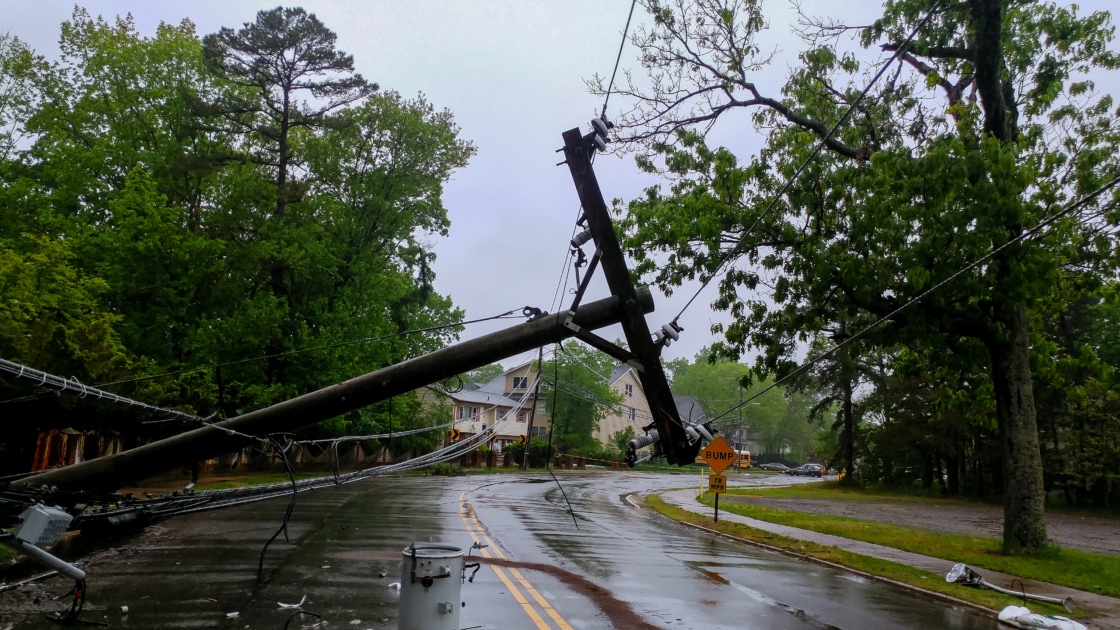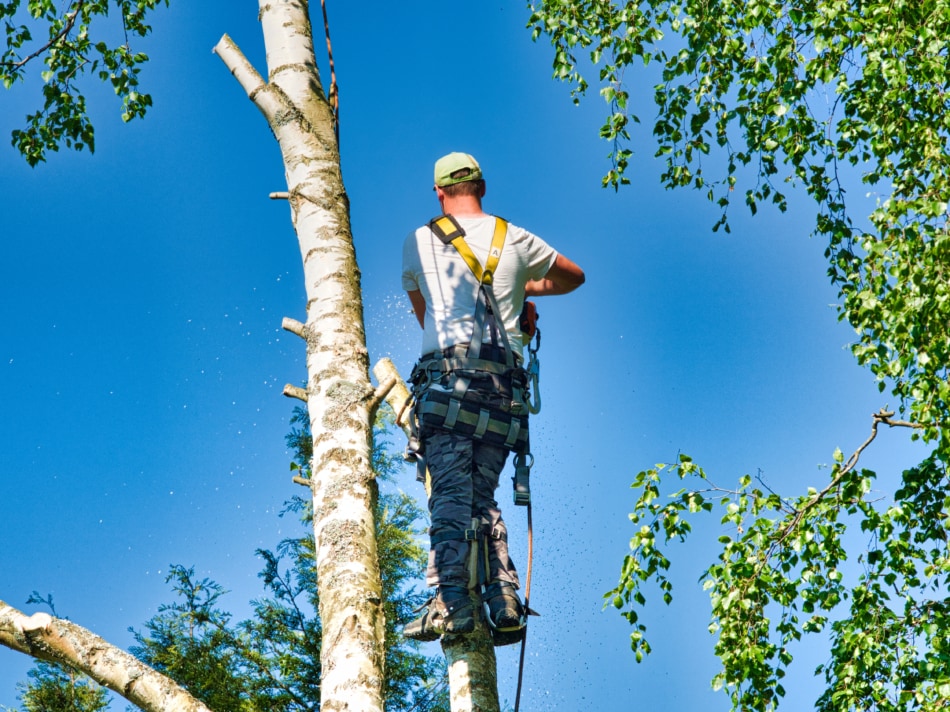Be Prepared! Spring Storm Safety Checklist
Make sure you and your property are prepared for whatever Mother Nature throws your way.

Spring is here, which means severe weather can arrive at a moment’s notice, no matter where you live. Wind, rain, hail, tornadoes, and other elements can cause extensive damage to your home and property, so it’s always a good idea to be prepared for what Mother Nature throws your way. Below is a spring storm checklist to proactively protect your home and property from damaging spring storms.
Spring Storm Home Safety Checklist
- Familiarize yourself with your insurance coverage. Every homeowner should know exactly what their policy covers, or doesn’t cover, so there are no surprises in the event of storm damage. Damage to your swimming pool, for example, may not be covered.
- Assess. Take a walk around your property often to see if there is any damage—whether by Old Man Winter or from summer mayhem—and make necessary repairs. Small damage to roofs and chimneys that occurred during winter can turn into big headaches after any severe storm. Make sure gutters are clear and draining properly. Consider investing in a chimney cap—they’re great at keeping out moisture from heavy rains, which can damage stainless steel liners, or cause mold.
- Ensure sump pumps are working. Spring runoff and torrential rainstorms can all result in flooded basements. Make sure your pumps are running smoothly so they can do their job when you need them.
- Secure backyard items. Your backyard oasis can turn into a danger zone in a severe storm. High winds can turn unsecured items into missiles. If you’ve received a warning that a severe storm is approaching, move these items—patio furniture, lawn chairs, propane tanks, and grills, flags and poles, bird feeders, and potted or hanging plants—inside your home, shed, or garage if possible. If you can’t bring furniture or heavy items in, try using a rope or garden hose to tie them down securely.
- Trim and prune trees. Remove dead branches that could end up being dangerous projectiles in a severe storm and cause damage not covered by your homeowner’s insurance. Are any hovering near the power source to your home? Most arborists recommend that trees and limbs be at least 10 feet away from your home. Hire one to come out and identify any problem areas. Or enlist a knowledgeable friend.

Be ready for power outages:
- Think ahead. Make ice, lots of it. Fill up empty soda bottles with water and freeze them and leave them in your freezer. These will come in handy in both a cooler or the refrigerator, like an old-time icebox.
- Stay informed. Know your electrical company’s phone number to report outages and listen for updates. If you don’t have a battery-operated radio, get one!
- Use a cooler for essential foods. This way you can keep the refrigerator closed and keep the foods that you absolutely need to access cool and safe.
- Disconnect. If you have an electric garage door opener, be sure to disconnect it before your stuck in the dark, without a vehicle.
- Batteries. It’s always a good idea to have extra batteries, some drinking water, and a good first-aid kit on hand.
- Think camping. Either get a camp stove (always use it outside) or use the grill to cook if you’ve lost power. If you have a lot in the freezer and it’s going to be a long time without power, you may just want to invite the neighbors over and grill up as much as possible before it goes bad.
- Keep your cell phone charged before the power goes out!

Other safety tips to consider:
- Be sure you’re receiving severe weather alerts on your cell phone. Most cell phones are automatically equipped with emergency alerts. Check with your carrier.
- Know your community’s warning system. And be sure everyone in the family is aware of what the signal sounds like.
- Review your town’s evacuation route and identify where shelters are located. If you have to evacuate at a moment’s notice, you don’t want to be scrambling for this information.
Other Helpful Tips
Click on the following links to read more of our helpful tips for disaster preparedness for your family and pets:
Emergency Preparedness: Is Your Pet Safe?
This article was published by the staff at Farmers' Almanac. Do you have a question or an idea for an article? Contact us!







Great tips. I wish there was an organization that would take trees down, or tops them out for those of us with an issue and no revenue to fix it.
easy first steps – check out ordinances. if neighbors don’t trim (lots of reasons that might happen), take them to coffee or take over some cookies and get to know them… talk about the danger (to both of you), and negotiate an inspection – maybe your insurance will pay for one or recommend a free one and you’ll be in a position to let them know what their liability might be… an incentive for sure. before you do this, if you aren’t, start making nice. be a good neighbor – invite them for coffee… take cookies, whatever! then when you need something you aren’t starting a fight, you’re working something out. if they can’t pay and you have concerns for yourself, offer to share the cost or just eat it… often things that make your home safer decreases your insurance, for one thing. doesn’t matter – if you’re thinking there’s a safety issue, go after it, but don’t be pushy, be nice first.
kcbowman: good tips!
Michael, I’m pretty sure anything that grows over your property line or fence you can trim regardless of where the tree originates. This would help with property damage to your house. That’s how it is here where I live anyhow. I guess you’d have to check with City Hall to know for sure.
Your help, is all well and good. But what do you do when the people next door don’t care and don’t trim there trees ever!
Are home get damaged by there trees, and our insurance tells us its an act of God and it’s not covered!
Them what!!
Thanks for your helpful tips for disaster preparedness. Gave me something to think about to help keep my family and property safe.